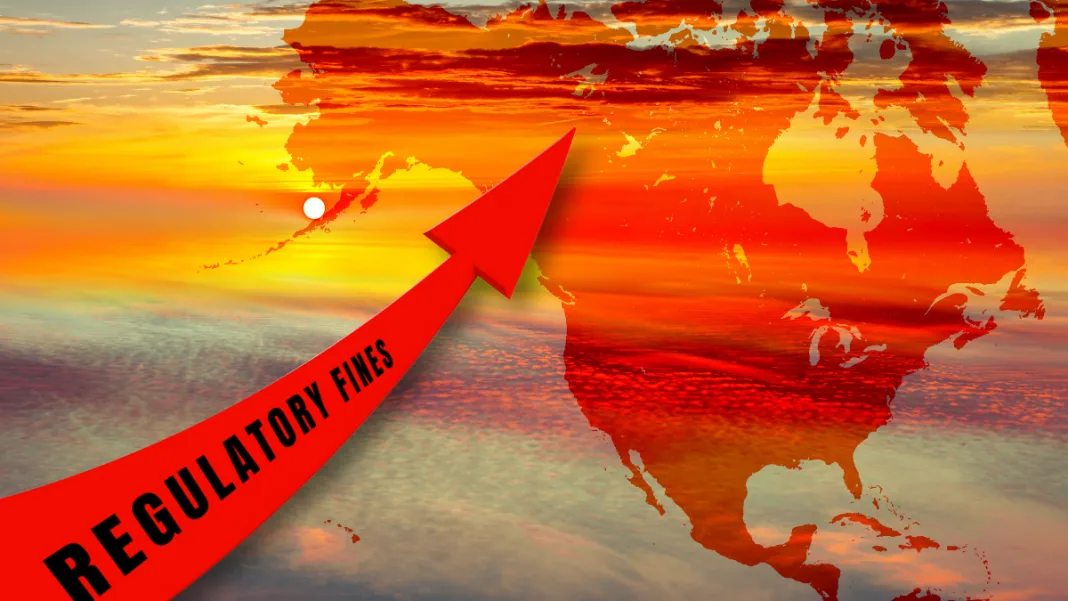Meanwhile, APAC regulatory fines fall to US$3.4m from US$10.7m in the prior year
Up to the first half of 2025, regulators worldwide are estimated (from publicly available official data) to have issued approximately 139 financial penalties to financial institutions, totaling US$1.23bn. This can be compared with the trends from H1 2024, where 118 fines were imposed amounting to US$238.6m for cases linked to anti-money laundering (AML), Know Your Customer (KYC), sanctions, suspicious activity reports (SARs), and transaction monitoring requirements.
The highest fines were meted out to North American regulatory authorities, involving over US$1.06bn in penalties in H1 2025: a 565% increase compared to the same period last year, based on the same public data on regulatory fines.
On that basis, enforcement actions in Europe, the Middle East, and Africa (EMEA) have also increased in H1 2025, with fines totaling approximately US$168.2m, up from US$68m in 2024. Conversely, the total penalties issued by regulators in the Asia-Pacific (APAC) region had decreased to around US$3.4m in H1 2025, down from US$10.7m over the same period in 2024:
- The most substantial individual fine worldwide had been issued by the US Department of Justice to cryptocurrency exchange OKX, which was forced to pay more than US$504m after being found guilty of failing to maintain an effective AML program.
- Other significant fines involved crypto exchanges such as BitMEX, which had been fined over US$100m for similar failures.
- There had been an increase in sanctions-related penalties during H1 2025 using the same data sources used, rising from US$3.7min H1 2024 to US$228.8m in H1 2025.
According to Rory Doyle, Head of Financial Crime Policy, Fenergo, the firm sharing its findings with the media, the findings reflect a “global trend of increased regulatory scrutiny around sanctions compliance, as geopolitical tensions and evolving sanctions regimes place greater pressure on firms to bolster their systems and processes” … even if the total fines in H1 2025 appear lower in some regions than in others.



